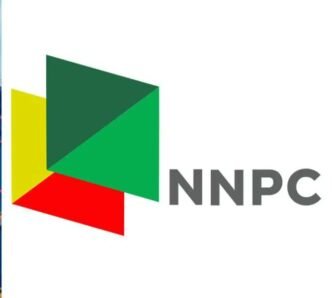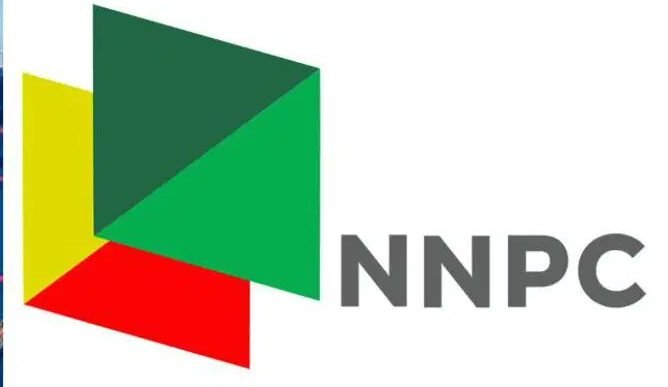Providus, Unity Bank Shareholders Approve Historic Merger to Reshape Nigeria’s Financial Sector
The Nigerian financial services landscape is on the verge of a major transformation as shareholders of Providus Bank and Unity Bank have officially approved a merger between the two institutions. This landmark decision, reached after months of negotiations, has set the stage for the creation of a stronger and more competitive entity in Nigeria’s banking industry.
The development, announced after extraordinary general meetings (EGMs) held separately by both banks, is expected to usher in a new wave of growth, digital innovation, and financial inclusion across the country. With the shareholders’ nod, regulatory approvals from the Central Bank of Nigeria (CBN) and the Securities and Exchange Commission (SEC) are now the final steps before the deal can be formally sealed.
This merger comes at a time when Nigeria’s banking sector is under increasing pressure to consolidate, strengthen capital bases, and meet evolving regulatory requirements, particularly following recent policy directives aimed at enhancing financial stability.
A Bold Move in the Banking Sector
Providus Bank, a relatively young but fast-growing player in the financial services space, has been widely recognized for its strong focus on technology, innovative product offerings, and customer-centric banking solutions. Unity Bank, on the other hand, is one of Nigeria’s legacy institutions with deep roots in retail and agricultural lending, though it has faced challenges in recent years, including capital adequacy issues.
By combining forces, both institutions aim to leverage each other’s strengths—Providus’ technological agility and Unity’s expansive branch network—to build a more resilient, efficient, and future-ready financial powerhouse.
Financial analysts have described the merger as a “strategic lifeline” for Unity Bank while presenting Providus Bank with an opportunity to scale more rapidly across Nigeria’s competitive market.
Shareholders Give Resounding Approval
At the shareholder meetings, which were well attended, there was overwhelming support for the merger. Stakeholders expressed optimism that the deal would unlock long-term value, create broader market opportunities, and enhance returns on investment.
A representative of Unity Bank shareholders remarked:
“This is the right move at the right time. Unity Bank has struggled with capital requirements, but with Providus coming onboard, we are confident in the renewed strength and vision that this merger will bring.”
Similarly, a Providus shareholder described the deal as “transformational,” noting that the merger aligns with the bank’s long-term growth trajectory and expansion strategy.
Strategic Benefits of the Merger
Industry experts have identified several potential benefits of the Providus–Unity Bank merger, including:
- Capital Strengthening: Unity Bank has faced recapitalization challenges in the past. With Providus’ relatively healthier financial position, the merged entity is expected to meet regulatory capital requirements seamlessly.
- Expanded Market Reach: While Providus has excelled in urban, technology-driven markets, Unity Bank’s stronghold lies in rural and semi-urban areas, particularly in the agricultural lending sector. Combining these footprints will give the merged institution wider geographic reach and customer diversity.
- Enhanced Technology and Innovation: Providus Bank’s digital-first strategy, fintech partnerships, and innovative banking products could significantly modernize Unity Bank’s service offerings. Customers are expected to benefit from improved mobile and online banking services, seamless transactions, and cutting-edge financial solutions.
- Operational Efficiency: Mergers typically result in economies of scale. The new institution will likely reduce duplications, optimize operations, and improve cost-to-income ratios.
- Improved Investor Confidence: The merger signals resilience and forward-thinking leadership, which may attract more investors, improve credit ratings, and enhance overall market confidence.
Challenges Ahead
Despite the optimism, there are significant challenges that both banks will need to address. Integrating two distinct corporate cultures, aligning management structures, and harmonizing technology systems are complex processes that often determine the success or failure of mergers.
Customer retention is another key factor. Unity Bank customers, many of whom are in rural areas, may initially find it challenging to adapt to Providus’ more digital-driven banking model. Ensuring smooth communication and customer support during the transition will be crucial.
There are also regulatory hurdles. The CBN, SEC, and other financial oversight bodies will scrutinize the merger terms carefully to ensure that the deal aligns with industry standards, promotes financial stability, and protects the interests of depositors and investors.
Analysts’ Perspective on the Banking Industry
The Providus–Unity Bank merger reflects a broader trend in Nigeria’s financial sector where consolidation has become inevitable. In recent years, regulators have urged commercial banks to strengthen their capital bases, a move reminiscent of the banking consolidation era of 2004–2005 under former CBN Governor Charles Soludo.
Analysts believe that more mergers and acquisitions are likely in the coming years, particularly among mid-tier and struggling banks. This trend could create fewer but stronger banks capable of competing regionally and globally.
According to Dr. Uchenna Okoro, a financial analyst based in Lagos:
“The Providus–Unity Bank merger is not just about saving Unity Bank; it’s about setting the tone for what the future of Nigerian banking will look like—bigger, stronger, and digitally driven institutions.”
Implications for Customers
For customers, the merger could mean improved access to innovative banking products, better digital banking platforms, and stronger assurance of financial stability. Unity Bank’s existing customers may gain access to Providus’ premium services, such as enhanced corporate banking solutions, seamless e-payment platforms, and advanced fintech collaborations.
However, customers may also experience short-term disruptions during the integration process, such as system downtimes, restructured account numbers, or revised terms for certain banking products. Both banks have assured depositors that their funds remain safe and that every step will be taken to ensure a seamless transition.
The Future of the Merged Bank
While the official name of the merged entity is yet to be disclosed, branding experts suggest that it may retain the Providus identity due to its growing recognition in Nigeria’s banking landscape. However, given Unity Bank’s legacy, a hybrid identity is also possible.
The new institution is expected to prioritize digital transformation, expand into underserved markets, and play a more prominent role in financing key sectors such as agriculture, small and medium enterprises (SMEs), and infrastructure.
Furthermore, the bank may leverage Providus’ fintech-driven approach to attract younger demographics while maintaining Unity’s grassroots appeal in rural communities. This dual strategy could set the merged entity apart from other tier-two banks in Nigeria.
Regulatory Oversight and Next Steps
Following shareholder approval, the banks must now secure a “no objection” approval from the CBN and clearance from the SEC. The Federal Competition and Consumer Protection Commission (FCCPC) will also play a role in ensuring the merger does not create unfair market dominance or reduce competition.
Once these approvals are granted, both banks will proceed with operational integration, which may take months to fully complete. Employees will undergo restructuring, product offerings will be aligned, and customers will gradually be migrated to unified platforms.
Conclusion
The approval of the Providus and Unity Bank merger marks a turning point in Nigeria’s banking industry. It represents not only a lifeline for Unity Bank but also an ambitious growth opportunity for Providus Bank. If executed effectively, the merger could set new standards for mid-tier banking in Nigeria, blending innovation with grassroots financial inclusion.
As Nigeria’s economy faces multiple challenges—from inflation to foreign exchange volatility—the creation of stronger and more efficient banks is vital. The Providus–Unity Bank merger could become a model for other financial institutions, paving the way for a more stable, competitive, and customer-focused banking sector.
The coming months will reveal how this historic union unfolds, but one thing is certain: Nigerian banking has entered a new era of consolidation and transformation.












